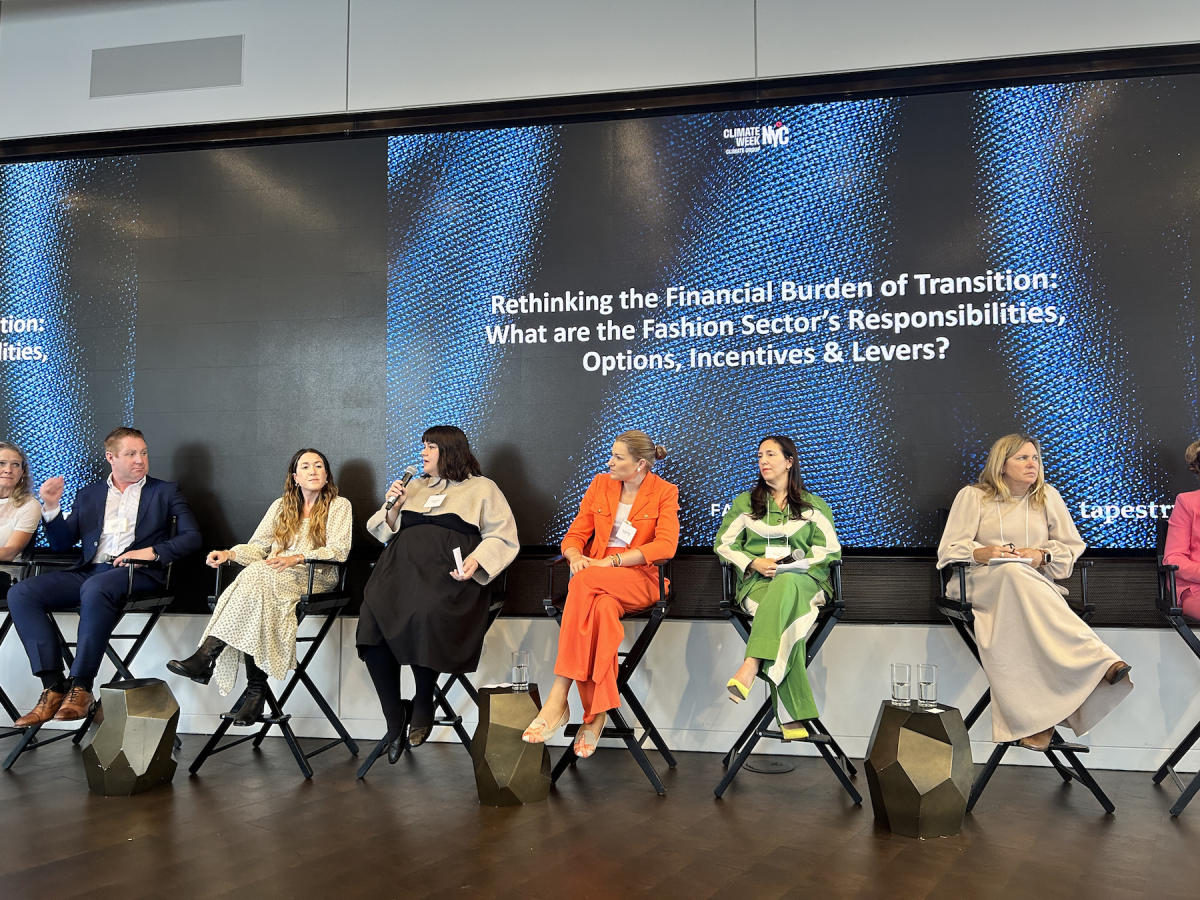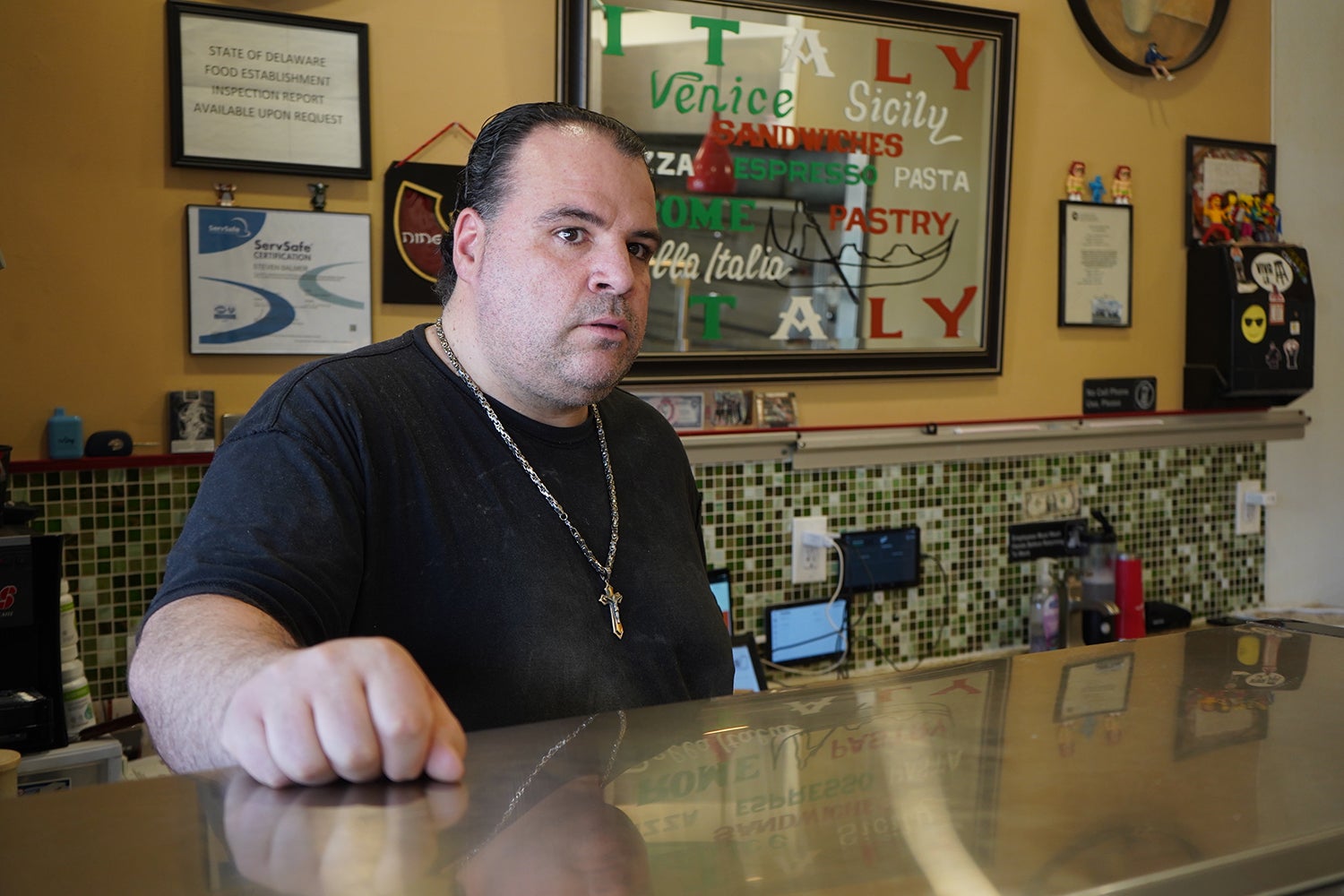Fashion
Fashion Pact: Decarbonizing the Industry May Seem ‘Impossible Until It’s Done’

Now that New York Fashion Week has come to a close, the city that never sleeps has welcomed Climate Week—the largest annual climate event of its kind, held in partnership with the United Nations General Assembly—to the five boroughs (but mostly just Manhattan).
Hosted by international nonprofit Climate Group, the 16th iteration of the event’s theme emphasized that the time to mitigate the climate crisis is now.
More from Sourcing Journal
“Today and this week, it’s time to think about the crucial decisions and action we need to start taking right now,” Helen Clarkson, Climate Group’s CEO, said in her opening speech. “Because history will judge us. One hundred years from now, people will say, ‘They knew where they were heading, how many warnings from scientists did they need? How many people needed to die in heatwaves for them to really believe what was happening?’”
True to the theme, the Fashion Pact, Tapestry and the J. Crew Group co-hosted the “Financing Fashion’s Decarbonization Initiatives” event, where relevant players explored how the collective, innovative finance mechanisms help accelerate the solutions necessary for a net-zero industry.
“Under the theme of time, there is a burning platform to drive change and take good intentions and drive that into impact,” Peter Charles, chief supply chain officer of Tapestry, said during opening remarks.
Held on Sept. 25 at Tapestry’s global headquarters, the session, dubbed “Rethinking the Financial Burden of Transition: What are the Fashion Sector’s Responsibilities, Options, Incentives and Levers?” served as a soapbox for sustainability and finance stakeholders to consider supply chain decarbonization—deeming increased corporate financial engagement necessary for substantial change at scale.
“When the future of humanity is at stake, we should collaborate,” Paul Polman, co-founder and co-chair of the Fashion Pact said. “When people come together collectively—I’ve seen it over and over again—they become more courageous.”
“Increasingly, there’s the harnessing of sustainability linked bonds, and I think there’s a lot of positive movements. . . all of this is positive [but] we need more companies engaged. We need to move faster,” Payal Luthra, global apparel and textiles lead of WWF, said. “This is where collective financing can play a big role, because it can funnel funds to the right projects.”
The decarbonization discussion also referenced the Fashion Pact’s Unlock Program and the Future Supplier Initiative.
Unlock, a non-for-profit collective financial mechanism intended to decarbonize cotton production, revealed initial results from its pilot phase, which saw participation from 25 brands, including the J. Crew Group and House of Baukjen.
“We had a deliberately kind of quite small pilot; we wanted to test a number of approaches and methodologies and work with a range of partners in two geographies—India and the United States—to make sure that it’s a really broad church, that it works for lots of different types of farmers under different schemes and programs,” Laila Petrie, founder of sustainability consultancy 2050 and project lead for Unlock, said. “The pilot phase has now concluded, and we have some really good initial results. Even more importantly, we’ve really learned how to scale that system so that we can be very ambitious about global enrollment.”
Unlock enrolled 10,000 farmers for the 2024 growing season and aims to be “very ambitious” and help at least 90,000 farmers transition to lower-climate impact cotton, in collaboration with its implementing partners.
“I think it really does have the potential, not only for the fashion industry, but beyond to other sectors to create this kind of pre-competitive solution,” Petrie said.
The Future Supplier Initiative, on the other hand, is “a means to decarbonize your supply chain through both technical and financial support,” Betsy Blaisdell, director of supply chain decarbonization at Guidehouse, explained. The technical support manifests as identifying a factory’s supply chain hotspots and how to mitigate them to cut emissions.
Once identified, Guidehouse finances that mitigation through low-interest rate loans that are “just below or just over the risk-free rate for lending, allowing the supplier to be able to finance those measures competitively compared to commercial rates,” per Blaisdell.
Ultimately, though, the collective industry needs to “get comfortable” with investing in opportunities that don’t look familiar.
“We’ve done the low-hanging fruit; we have done all the familiar stuff, and all those projects are really important, but actually true innovation now is complicated and slightly weird looking,” Petrie said. “We need to get comfortable with financially supporting things that we don’t feel are familiar and safe. I think if we can start to do that as an industry and as a sustainability space, we’ll be in an amazing position to start to make change happen.”
“To quote Nelson Mandela, it always seems impossible until it’s done,” Eva von Alvensleben, executive director and secretary general of the Fashion Pact, said during the event’s closing remarks. “So, let’s collaborate together. Let’s feel comfort in this unity.”










